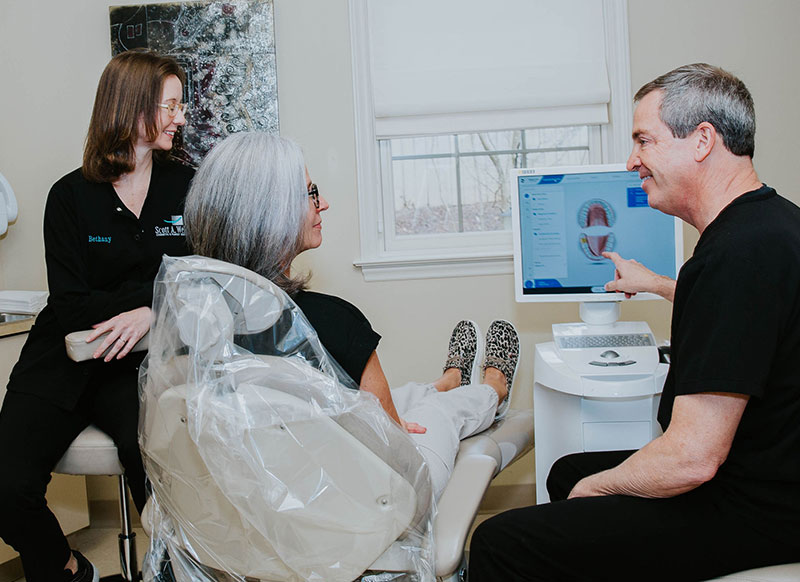DENTAL SERVICES
GENERAL DENTISTRY


 What is a "root canal" treatment for teeth?
What is a "root canal" treatment for teeth?Under the hard, visible tooth surface lies a softer area of tissue called dental pulp, which contains blood vessels, connective tissue, and nerves. Teeth have roots — the longer, narrow parts of the tooth under the gum line that connect your teeth to your jaw bone. The nerves in a tooth, which primarily tell you whether something in your mouth is hot or cold, are within the root canals in the tooth's roots. If you have deep decay within teeth, cracked or chipped teeth, or damaged teeth due to facial trauma, the dental pulp and tooth nerve can become infected, irritated, and inflamed.
In some cases, people who need root canal therapy don't experience any symptoms. However, frequently there are signs you may need a root canal:
If you have infected tooth nerves or diseased tooth root tissue, removing the affected tissue inside the tooth will alleviate your tooth root pain and help you avoid needing permanent tooth removal. In fact, root canal treatment saves an average of 17 million teeth each year.
While root canal treatment has a bad reputation as being painful, when it's done properly, there is usually no more discomfort than having a tooth cavity filled. When Dr. Welch performs root canal treatment, he removes the damaged tooth's pulp and nerve, cleans inside the tooth, and replaces the diseased tooth tissue with an antibacterial filling. Then, he protects the weakened tooth by adding a crown or cap. He may also refer you to an endodontic specialist.
After leaving our office, you must treat your affected tooth carefully because you only will have a temporary filling or crown in place. As with virtually any dental procedure, some common after-treatment patient complaints after having a root canal include numbness, discomfort, or sensitivity. Click here to learn more about after-care for your root canal. LEARN MORE

If you have any questions, or would like to make an appointment, call our professional dental team at (336) 288-4499.